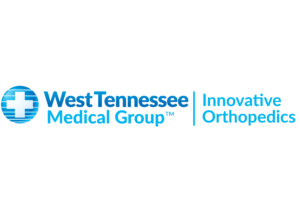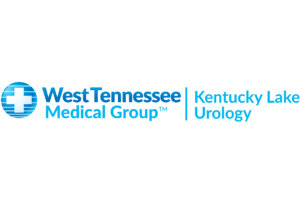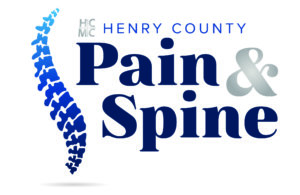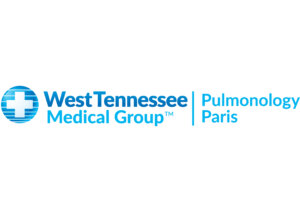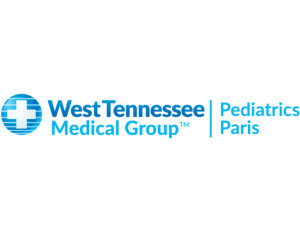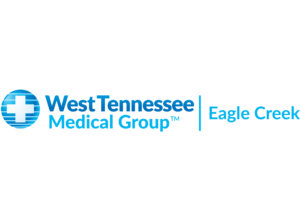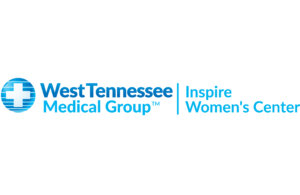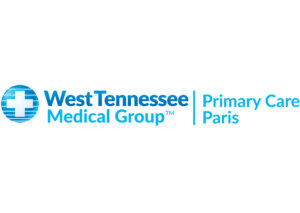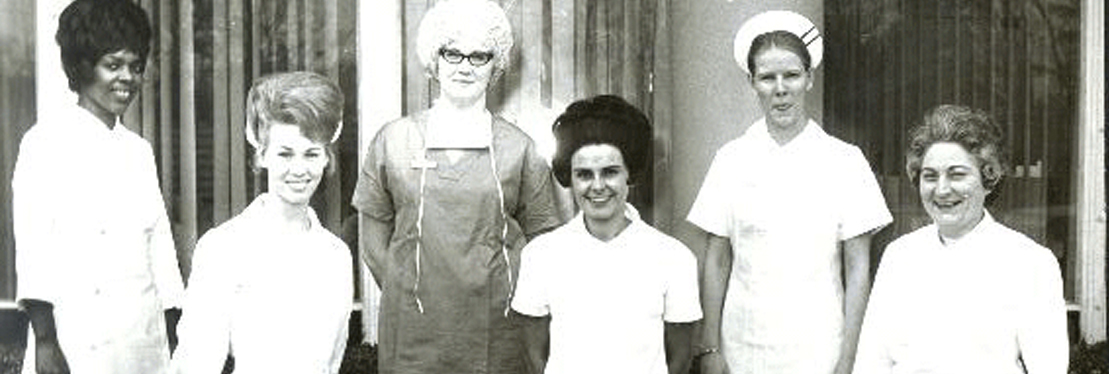History of West Tennessee Healthcare – Henry County Hospital
If you are interested in learning more about the history of West Tennessee Healthcare – Henry County Hospital, stop by the Paris and Henry County Heritage Center during normal business hours to walk through our healthcare journey. You can also view our Anniversary Video.

1950s
In 1948, the Henry County Court appointed a four-man committee to make a study of the need for a new county hospital.
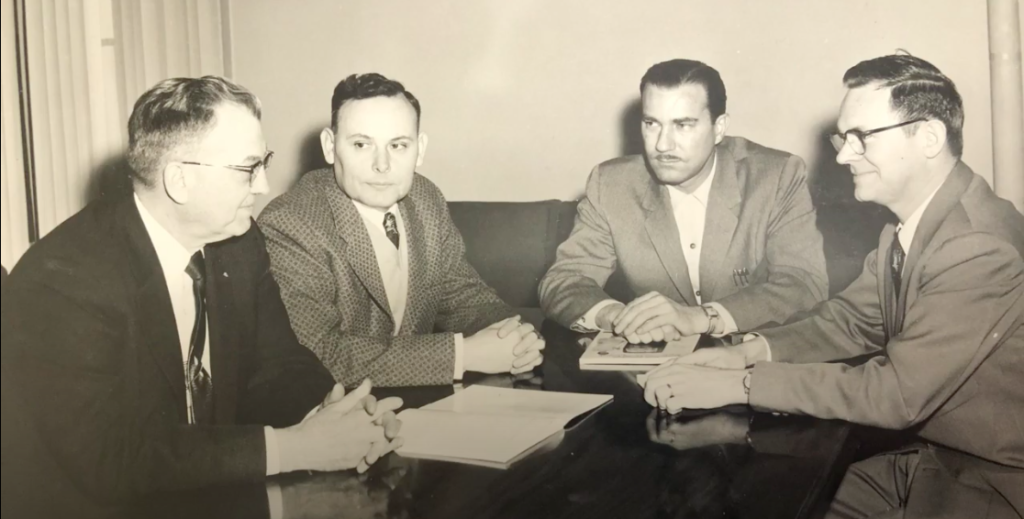
On April 1, 1950, Henry County voters passed the bond issue 5 to 1 to build a new hospital.
Henry County General Hospital was dedicated on August 28, 1953, serving the counties of Henry, Carroll, Benton, Weakley and Gibson. The administrator was Joe Kreycik. Hospital Auxillians served as tour guides for opening day.
The hospital, at a cost of $2.04 per cubic foot, was constructed under Public Law 725, commonly known as the Hill-Burton Hospital Survey and Construction Act of 1946, whereby over 1000 hospitals were built in the US. The act allowed the Federal government to contribute 52 percent of the cost of construction and the State of Tennessee would contribute 24 percent, leaving the county to provide the remaining 24 percent. The law allowed community ownership of the hospitals.
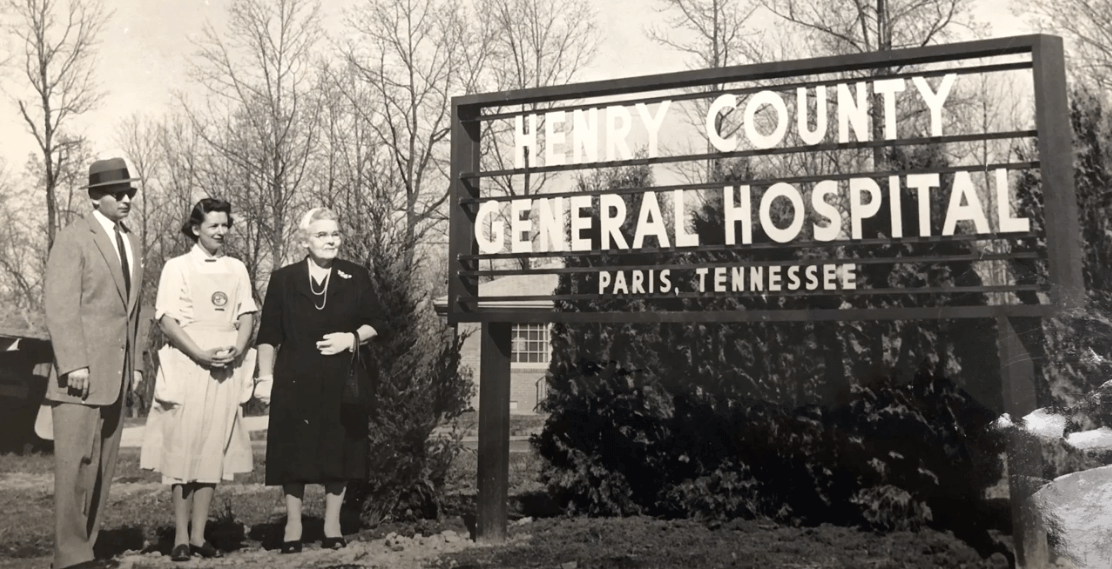
1950s
The 71-bed hospital was one of the first hospitals in the nation to use the double corridor, single-center service island concept to reduce nurse travel and put nurses closer to patients. The hospital had ultra-modern communication/paging system, automatic elevators, x-ray lab, laboratory and pathologist test rooms, self-sustaining pharmacy, revolutionary type food service and coffee shop, laundry, two emergency rooms with an ambulance entrance and a power plant that had two immense 100-horsepower boilers, two hot water heaters, oil furnace and an emergency power unit, all on the first floor.
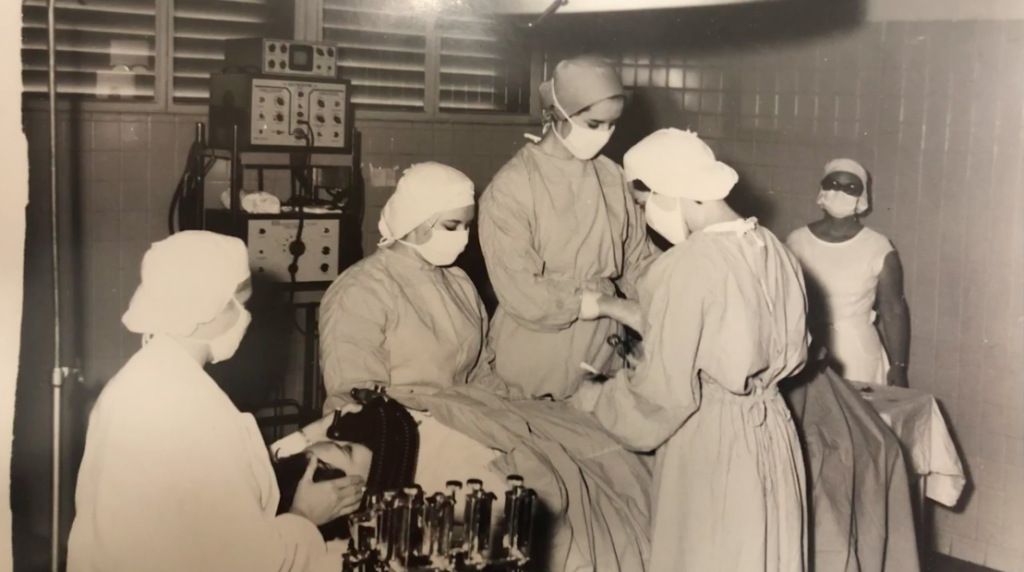
Second floor was dedicated to surgical recovery. There were seven private rooms with tub or shower, 14 private rooms without bath and 25 semi-private rooms.
Third floor had two isolation rooms and housed the pediatrics department as well. Fourth floor was the maternity floor containing three nurseries with 15 bassinets. Piped oxygen was available to every room.
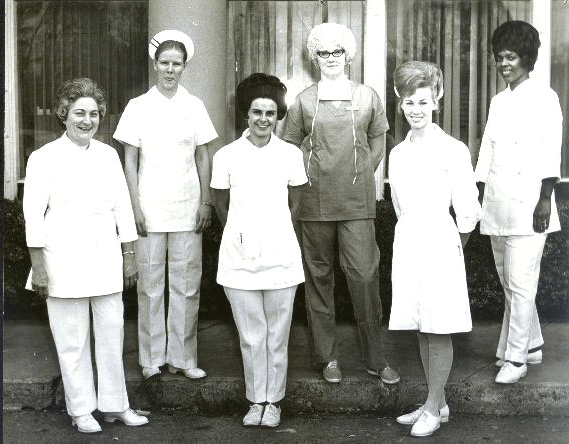
July 26, 1959
By 1956, it was evident that more beds and additional services were needed. A new patient wing was completed July 26, 1959. Air conditioning throughout the hospital was added at this time as well. The hospital then had a capacity for 128 beds.
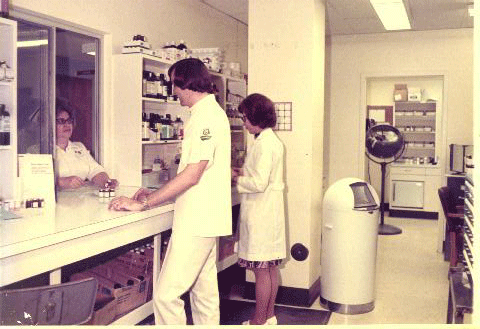
1970s
The next addition came in 1971 adding a new nursing unit of 38 beds, bringing the total bed count to 166. Many ancillary departments were upgraded too.

In 1972, a Cardiac Intensive Care Unit opened with four beds and a basic heart monitor. The unit was moved to the second floor giving them six beds and better quality monitors. The unit was updated dramatically in 1990.
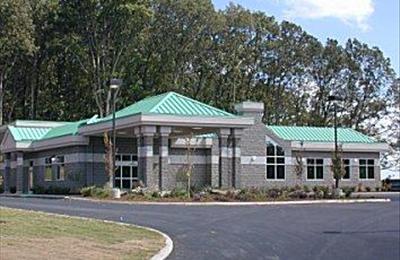
1980s-1990s
By 1985, the medical center had the latest in state-of-the art technology and emergency services, offering such services as;
- Cancer treatment center
- Home health service
- Laparoscopic surgical procedures
- Physical therapy
- Magnetic resonance imaging
- Medical Social Services
- A Lake Haven Behavioral Center
- Other diagnostic services
A mammoth $6 million renovation/expansion project was completed during 1989. This was the two-story Medical Arts Building and a high-tech radiation therapy department. Obstetrics and surgery departments were enlarged, the emergency room was enlarged and an outpatient treatment department was formed.
1993
The hospital, called Henry County Medical Center since 1985, celebrated 40 years in 1993. HCMC has always been a teaching hospital for Jackson State’s Radiological and Laboratory Technicians as well as Nursing students from UT Martin, Murray State University, Union University and Austin Peay University.
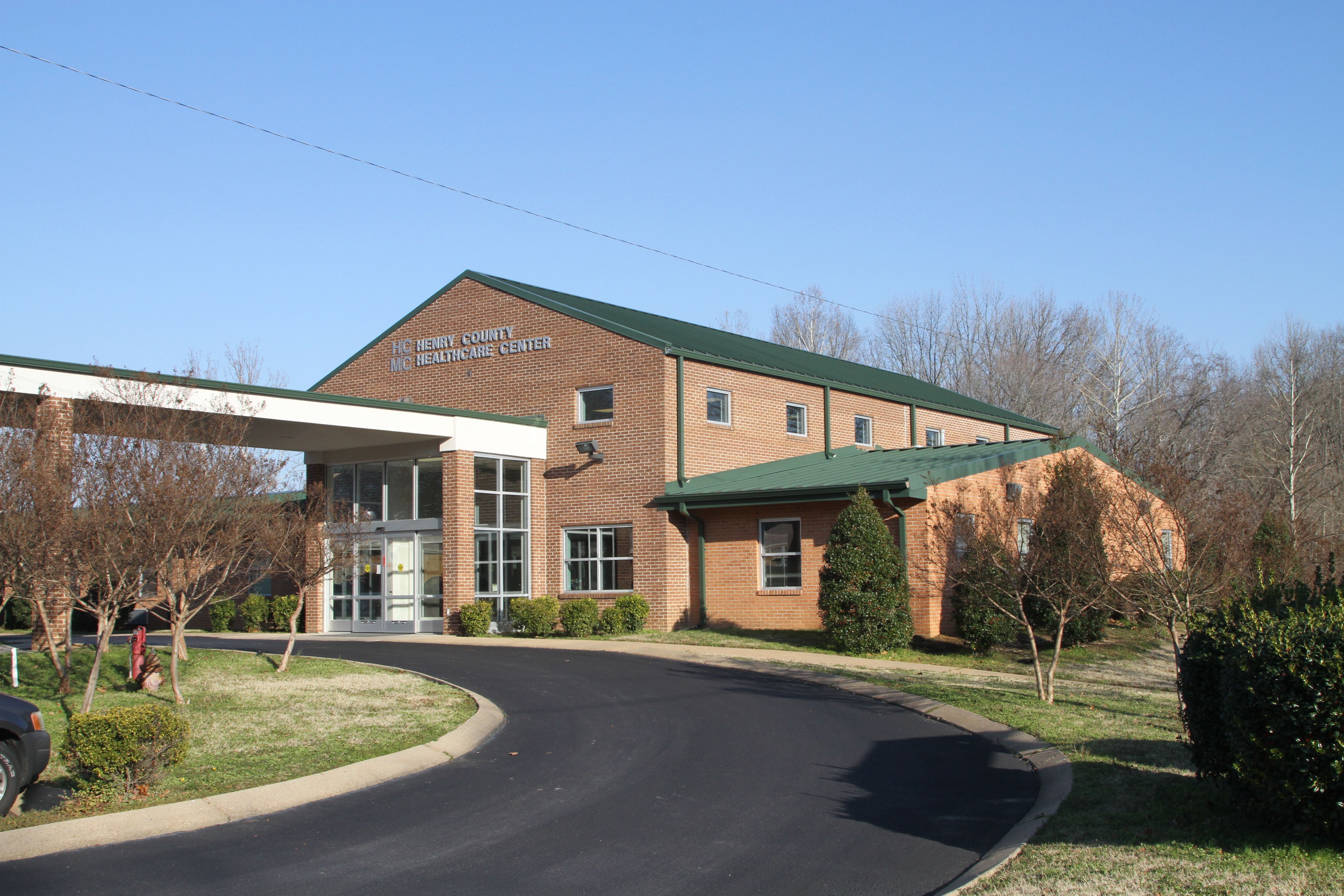
2000s
A complete renovation was completed on Deer Run Skilled Rehab Center at Henry County Healthcare Center in 2001. The Healthcare Foundation voted to raise $600,000 to fund this project. Because of the money donated to the Healthcare Foundation by Dr. and Mrs. Harold Plumley, it was decided to rename Deer Run Skilled Rehab to the Plumley Rehabilitation Center.
In 2002, a groundbreaking ceremony was held on the $16.5 million project which included a new patient bed tower, relocation of the main entrance, additional parking spaces, and new space for administration, business office, education, human resources, and accounting.
The new patient bed tower was opened in 2004. This expansion included a new cafeteria, allowed the Sleep Disorder Center to open and provided a new space for Cardiac Rehab. The shell space allowed for a new Pharmacy on the main level and a new Women’s Center on the second floor with birthing rooms and operating rooms for C-sections.
2007
After months of demonstrations, site visits, and study, administration recommended an upgrade to the information technology systems that will move toward electronic medical records. The first part of the new IT system to be installed and operational was the PAC (picture archiving computer) system in the Imaging Department which was completed in November 2006. Work continued over the next several months on conversion to the new system throughout the hospital. The go-live date was June 11, 2007 when the old system was taken down and the new system brought up.
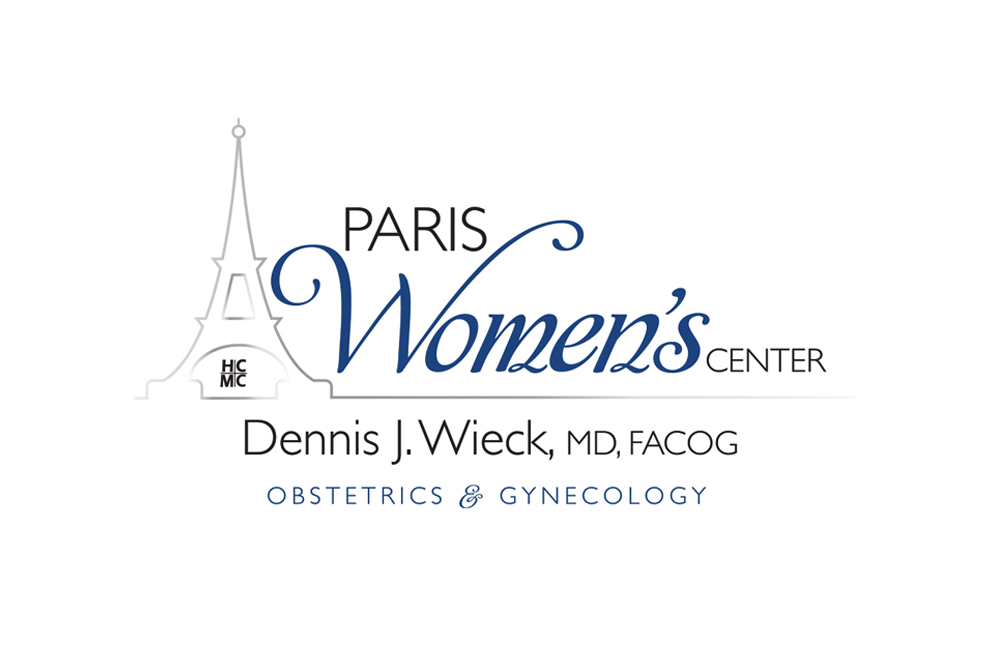
2009
In 2009, HCMC had its first medical clinic office with an employed physician – Dr. Dennis Wieck of Paris Women’s Center.
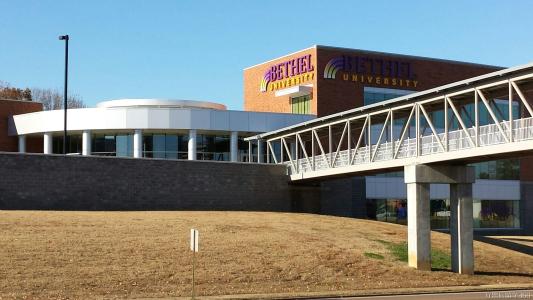
2010-2014
n 2010, representatives of Bethel University in McKenzie approached administration with a proposal for a joint project. Bethel planned to build a facility for the nursing and physician assistant programs and wanted the hospital to build a connecting outpatient imaging and lab facility. The HCMC Board of Trustees gave their approval and construction began in 2011.
The purchase of a refurbished Da Vinci Robot was approved at the request of urologist Dr. Joe D. Mobley, III. The first case was done on November 8, 2011. Also in 2011, HCMC purchased KY Lake Surgery Center.
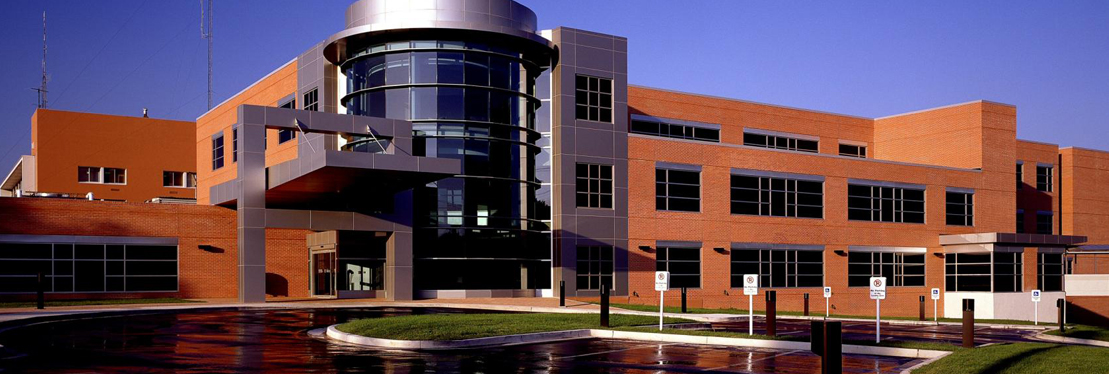
2014-2015
Approval was granted in 2014 to pursue construction of a new OR room. The proposed OR-7 would be 650 square feet, much larger than any other OR rooms. In 2014, the observation unit opened on Second East, Third Tower was designated as the inpatient unit, Second South was designated for pediatric patients and overflow, and the small nurses’ station area on Second East was designated for outpatient surgery patients.
HCMC purchased Kentucky Lake Urology Clinic in February 2015 and purchased Henry County Orthopedic Surgery and the sports medicine building in March of that year.

2015-2018
In early 2015, HCMC purchased the MAKO Robotic Assisted Surgery System. HCMC was one of the first in the region to have the MAKO. The first surgery with this robot was performed on April 10 by Dr. Blake Chandler.
In 2017, HCMC’s Diagnostic Center was designated a Diagnostic Imaging Center of Excellence by the American College of Radiology. HCMC was one of the first in the nation to receive this designation.
Most recently, in August 2018, HCMC Received JCAHO Disease Specific Care Certification for Joint Replacement for both hip and knees.
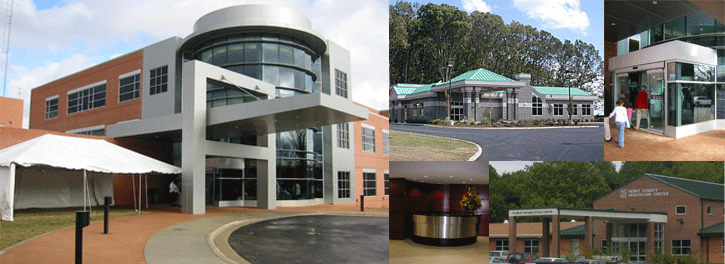
Now…
As you can see, West Tennessee Healthcare – Henry County Hospital has a very colorful history and we are consistently growing forward. If you are interested in learning more about the history of the hospital, stop by the Paris and Henry County Heritage Center during normal business hours to walk through our healthcare journey. The historical display is available for viewing through December 2018.
Watch our Anniversary Video
